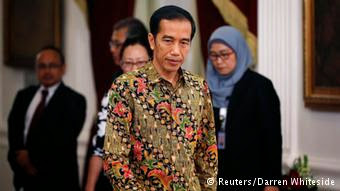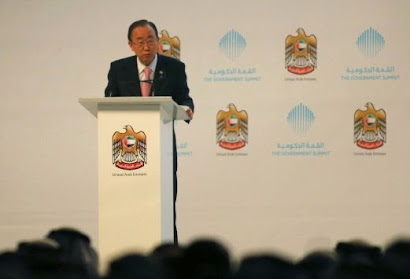Jakarta Globe, Report Katrin Figge | August 18, 2010
The exhibition ‘Jugun Ianfu - Comfort Women’ features portraits of 18 women, most of whom are now in their late 70s or early 80s. Accompanying text tells the stories of the women and their experiences during World War II. (JG Photos/Safir Makki and Amee Enriquez)
Related articles
- Robbery Led to Japanese Murders: Police Jun 21, 2010
- Indonesian Killer ‘Annoyed’ Over Sacking Jun 21, 2010
- ‘Nazi Castle’ Opens New Doors on a Dark Era Apr 15, 2010
- ‘The Pacific’ Hits Indonesia’s Shores Mar 29, 2010
- Berlin’s New Gestapo Museum Chronicles Horrors Mar 5, 2010
“As a 13-year-old girl, Ronasih was picked up on her way home from school by a soldier nicknamed Sideburns and locked up in a nearby barracks. There, she was raped systematically for three months by Sideburns and his pal.”
This is the story of Ronasih, from Serang, West Java, but it is shared by many other young Indonesian girls who became victims of sexual violence during World War II.
They were forced into prostitution by the Japanese military or repeatedly raped and sexually abused in factory warehouses, railroad cars and even their own homes.
It is a dark chapter in history that few people openly talk about. These women, known as comfort women or the Japanese term jugun ianfu — jugun means following the military and ianfu means comfort women — still carry the stigma and shame of what they had to endure.
“Her father visited the barracks several times and in vain offered himself as free labor in exchange for his daughter’s release. Not until the end of the war was Ronasih, very thin by then, released. ‘I had to crawl home, I couldn’t even walk anymore, it hurt all over.’
“Immediately after the war, she underwent surgery for internal injuries. ‘I only married late because I first wanted to think, my wounds hadn’t healed yet, I was afraid, I wanted to get better first.’
She’s been married five times, divorced several times after just a few months, and has never been able to bear children. ‘I did get injections from the doctor, but it’s God who determines whether you have children, not people.’ ”
Ronasih’s narrative is part of an ongoing photo exhibition, “Jugun Ianfu — Comfort Women,” by Dutch journalist Hilde Janssen and photographer Jan Banning at Erasmus Huis in South Jakarta.
Encouraging comfort women to break their silence, Janssen and Banning traveled the country to hear and record their stories.
The exhibition is a result of this undertaking — portraits of 18 women, most of whom are now in their late 70s or early 80s, accompanied by text that tells their stories.
It also features Japanese war propaganda posters found in archives in the Netherlands. These posters stand in stark contrast to the pictures of the women, which present a rarely talked about side of the story.
In addition, Janssen and Banning published al book, “Shame and Innocence: The Suppressed War Chronicles of Indonesia’s Comfort Women,” in both English and Dutch.
Banning also published book of his photographs, “Comfort Women.”
“I so much wanted to be ugly because the ugly girls they quickly sent away. But the beautiful ones had to stay.” These words accompany the portrait of Emah, from Kuningan, West Java.
The photo shows an old woman wearing a black blouse with purple flowers and a serious look on her wrinkled face. The two sentences sum up the horror and desperation she still feels to this day.
Even though she later got married, Emah was never able to have children of her own.
Even without the accompanying text, the women’s portraits, which exude pain and sadness, speak for themselves.
Janssen said the project was not easy to complete. Finding the women was difficult, and once they were located, some were unwilling to talk about their experiences. Many others had already passed away.
“We had to approach them discretely because feelings of shame remain severe,” Janssen said. “Often, they couldn’t bring themselves to say the word rape, were reduced to nervous giggling and called it ‘forced adultery’ or ‘doing it.’
“Even in their 80s, some women still face abusive sneers,” she added.
“As much as they would like to erase the traces of their wartime history, they drag it along all their lives: the humiliation and pain, their childless existence, the failed marriages.”
But despite the topic’s sensitive nature, Janssen felt that bringing it into the open was the right thing to do.
“While [these women] struggle with the physical and emotional impacts, the Japanese perpetrators have gone free,” she said. “The circle of silence needs to be broken, the voices of the women no longer suppressed.”
Yuniyanti Chuzaifah, chairwoman of the National Commission on Violence against Women (Komnas Perempuan), who opened the exhibition last week, agreed that it was time to shed light on this issue.
“The great characters that emerge before us through these portraits are women who had the courage to share personal experiences of sexual violence that have been undermining their lives for over six decades,” she said.
“They have raised their voices not only to demand a formal apology and compensation; they broke the silence to prevent future generations of women from falling victim to similar acts of sexual violence.”
According to Banning, it is estimated that there were at least 200,000 comfort women in Asia, with 20,000 in Indonesia. He previously worked on a similar project about men who suffered abuse as forced laborers on the Burma and Sumatra railways during the war.
“A lot of the men had trouble talking about this experience,” he recalled. “They felt humiliated and ashamed.”
He added that the comfort women would have felt the same way, even worse. “In fact, we also tried to include Dutch [comfort] women in this project,” he said. “Out of the estimated 200 to 400 [Dutch comfort] women, only a handful have ever come out in the open.”
Yuniyanti said: “The fate of comfort women forms an integral part of our national history. Not only does it concern a period that is a crucial part of the Indonesian independence story, the issues related to comfort women are also still relevant today. This is evident in the way in which this sensitive issue was suppressed and shelved by the New Order regime [of former President Suharto].”
She said the stories of comfort women were kept secret because they were seen as tarnishing the nation’s honor. She added that the same thing has been happening for the last four decades regarding cases of sexual violence against women.
The issue of the May 1998 riots, when women of Chinese descent became victims of mass rape and sexual attacks, has been largely ignored until now, Yuniyanti said.
“While praising the 1998 events as a starting point for the democratization process in Indonesia, the May 1998 tragedy itself is only mentioned as a mere riot, ignoring the faces of the grieving mothers who lost their children and the women who are not able to talk about their personal experiences without risking being criticized for undermining Indonesia’s reputation,” she said.
“Female victims of sexual violence are also being silenced by their own families and communities, as they prioritize safety and want to avoid the disgrace and cultural shame attached to the ‘sins’ of these women.”
The physical and psychological harm that these women have experienced can never be undone. Nevertheless, their stories need to be told.
“I think we do not only live for ourselves,” Banning said. “I think we should try to play a role in society with whatever means we have. We wanted to bring this story to the surface.”
Related Article:







No comments:
Post a Comment